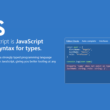Are you worried 😔 about getting string undeclared identifier errors in C++ (CPP) because the identifier string is undefined and looking for solutions to fix it?
A typical mistake made by beginners unfamiliar with the relatively restrictive requirements of the C++ programming language is using an undeclared identifier. Although the compiler raises this error, the actual cause may differ. Therefore, we will discuss several instances that are more likely to occur for beginners in this post.
In this article, we’ll discuss what an undeclared identifier error is in C++ (CPP), why it occurs, and how to resolve undeclared identifier errors in C++. So without further ado, let’s dive deep into the topic and see some real examples.
Table of Contents
What is an Undeclared Identifier Error in C++?
As we’ve discussed in C++, when you try to use an identifier that is yet not declared, the compiler raises an “undeclared identifier” error. That is because the C++ compiler has never seen it before; it is unaware of what you are referring to.
In C++, this type of error indicates that you haven’t informed the compiler about the object you are attempting to use. Since header files frequently include declarations, it is possible that you have not added the proper header. Of course, it’s also possible that you just forgot to define the entity.
Why Undeclared Identifier Error Occurs in C++?
The compiler will throw an undeclared identifier error if it cannot locate a declaration for a given identifier. Modern integrated development environment (IDE) software will often detect these issues and flag them in some way to alert the user before compilation.
This makes undeclared identifier mistakes in multi-file programs rather simple to detect and even trace. However, you should be conversant with the many C++ language techniques that are typically used to solve underlying problems.
The compiler cannot find the declaration for an identifier. This error might have a number of causes. The identifier hasn’t been defined, it’s misspelled, the header where it’s declared isn’t present in the file, or the identifier lacks a scope qualifier, such as cout instead of std::cout.
Let’s see an example:
Code
int main() {
std::cout << "undeclared!";
return 0;
}
Output
In the above code, we are using std::cout in the program, but we have not included “#include <iostream>”, so it is giving an error that cout is not a member of std.
How Does an Undeclared String Identifier Error Occur in C++?
Following are the reasons why an undeclared string identifier error occurs in C++:
- When a variable is not declared
- Incorrect variable name
- Variable declared out of scope
- When the library is not included
Reason 1: When a Variable is Not Declared
There are situations when we may forget to define a variable when we are using it. Without defining the variable, we continue to write code that uses it. Let’s see an example below:
Code
#include<iostream>
using namespace std;
int main(){
a=a+1;
cout<<a;
return 0;
}
Output
In the above code, we are simply declaring the variable before using it, which will correct this. For instance, here, the variable a is being used without being declared. This will result in a mistake. To correct the issue, we must declare a before using it.
Reason 2: Incorrect Variable Name
Sometimes we may misspell a variable name when coding the code. This kind of inaccuracy is frequent since spelling mistakes are so easy to make when typing. To correct this, simply make sure that every occurrence of the variable you have used is spelled correctly. As an illustration, we have spelled num as nus and received an error. We check the spelling of all the variables in order to rectify this. Let’s see an example:
Code
#include<iostream>
using namespace std;
int main(){
int num=4;
num=nus+2;
cout<<num;
return 0;
}
Output
In the above example, we are using the incorrect spelling of the user name we have declared. To correct this, simply make sure that every occurrence of the variable you have used is spelled correctly. As an illustration, we have spelled num as nus and received an error. We check the spelling of all the variables in order to rectify this.
Reason 3: Variable Declared Out of Scope
This error also occurs if we attempt to use a variable that is not defined in the scope for which it was intended. Ensure a variable is only used inside its scope to avoid this. Let’s see an example:
Code
#include<iostream>
using namespace std;
int main(){
int num=0;
for(int i=0;i<8;i++){
num++;
}
cout<<num*i;
return 0;
}
Output
In the above example, we have declared the variable i outside the scope. The for loop, in this case, is the only place where the scope of i exists. Therefore, using i outside of the loop results in an error. To fix it, just define I outside the loop so that the entire program may utilize it inside the main function.
Reason 4: When The Library is Not Included
An undeclared identifier error will appear if we attempt to use a data type like vector without providing its library. Make sure that you only use an identifier after including its library if you want to resolve this issue. Here, for instance, we are using vectors without the library. This produced an undeclared identifier error. Let’s see an example:
Code
#include<iostream>
using namespace std;
int main(){
vector<int> num;
for(int i=0;i<5;i++){
num.push_back(i);
}
cout<<num[4];
return 0;
}
Output
How to Resolve an Undeclared String Identifier Error in C++?
The following are methods to resolve the undeclared string identifier:
- Declare a variable before using it
- Correct variable name
- Declare variable in scope
- Include library when used
Method 1: Declare a variable before using it
In the above example, it was giving an error because we were using a variable that was not declared. In the code below, we are using a variable after declaring it. So it does not give an undeclared identifier error. Let’s see an example:
Code
#include<iostream>
using namespace std;
int main(){
int a=1;
a=a+3;
cout<<a;
return 0;
}
Output
4
Method 2: Correct variable name
Sometimes we use different spellings for the same variable, which can cause an undeclared identifier error. The example above gave an undeclared identifier error because we were using a declared num variable but were using nus below. Let’s see an example:
Code
#include<iostream>
using namespace std;
int main(){
int num=4;
num=num+2;
cout<<num;
return 0;
}
Output
6
Method 3: Declare variable in scope
In the above example, we were using the variable i outside the scope. To fix it, just define i outside the loop so that the entire program may utilize it inside the main function. Let’s see an example:
Code
#include<iostream>
using namespace std;
int main(){
int num=0,i=0;
for(i;i<8;i++){
num++;
}
cout<<num*i;
return 0;
}
Output
64
Method 4: Include library, when used
Make sure that you only use an identifier after including its library if you want to resolve this issue. In the above example, we were using a vector without including its library. In the example below, we are using vectors, so we have also included their library.
Code
#include<iostream>
#include<vector>
using namespace std;
int main(){
vector<int> num;
for(int i=0;i<5;i++){
num.push_back(i);
}
cout<<num[4];
return 0;
}
Output
4
Conclusion
To summarize the article, we have discussed what an undeclared identifier error is in C++, why it occurs, and how to resolve undeclared identifier errors in C++.
In this article, we have discussed the error’s most likely causes while using examples. We look at examples when a variable is not declared, when an incorrect variable name is used when a variable is declared out of scope, and when the library is not included. Furthermore, we now understand how to fix an undeclared identifier error, as we have also discussed reasons why undeclared errors occur and how to fix undeclared identifier errors in C++.
Let’s have a quick recap of the topics discussed in this article.
- What is an Undeclared Identifier Error in C++?
- Why an undeclared string identifier error occurs in C++?
- How Does an undeclared string identifier error occur in C++?
- How to resolve an undeclared string identifier error in C++?
If you’ve found this article helpful, remember to share and comment below. 👇: Which solutions have helped you solve the problem?












